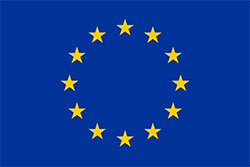Member of- the School of Salamanca, Father Juan de Mariana (1535-1624) was a Spanish Jesuit and theologian who made great contributions to modern political thought and economic science. He is one of the most important thinkers that the Church has given to economic thought and whose contribution is still very relevant today.
A defender of free market, Juan de Mariana’s main economic contribution was the defense of a balanced budget, a sound currency[1]and free competition as the best way to achieve economic prosperity and welfare of society. The central concern of Juan de Mariana’s thought is monetary theory and the issue of hyperinflation. For him, “if money falls below its legal value, all merchandise rises without remedy, at the same rate that the currency fell and everything goes to one account“[2], emphasizing the negative impact of inflation on consumption. The increase of the monetary mass had originated a situation of hyperinflation in Castile that considerably reduced the purchasing power of the people and damaged commerce. This situation was particularly pronounced among the lower classes of society.
Beyond his technical contribution, in Juan de Mariana’s work one can sense an intention to find solutions by giving vital importance to morality. An economic thought focused, as a Catholic, on achieving the welfare of society and the protection of the weakest. Such is de Mariana’s moral concern for the economy, that instead of devaluation he speaks of “debasement of the currency”[3], bringing up that moral dimension: good and evil. This concern reflects the Church’s notion of how the economy should be at the service of man and not the other way around.
In this sense, the Magisterium of the Church considers the economy as an eminently moral phenomenon, since man acts and decides in freedom, his decisions are moral acts. Thus, John Paul II, in his encyclical letter Centesimus Annus, considers the market economy as a phenomenon that must be subordinated to ethical and moral principles in order to guarantee the benefit of the whole society, especially the poorest and most marginalized.
In conclusion, we begin our Altum Thinker project whose objective is to bring the Social Doctrine of the Church closer to the world of investment and economics through different thinkers that we will bring in the future. The monetary thought of Father Juan de Mariana highlights the importance of stability and confidence in the currency, and its moral background can be very relevant in the current context of inflation. He reminds us that the economy and the currency must be at the service of society and its welfare, and that stability and confidence in the currency are fundamental for this.
[1] Instituto Juan de Mariana. 2002. “Juan de Mariana y la Escuela de Salamanca” available at: https://juandemariana.org/el-ijm/juan-de-mariana/
[2] Mariana, Juan de. 1609. Tratado y discurso de la Moneda de Vellón (De Monetae mutatione). Juan de Mariana, trans.
[3] Torras, Luis. 2019. “Juan de Mariana, la Hiperinflación Castellana y el nacimiento de la Teoría Monetaria Moderna” available at: https://juandemariana.org/ijm-actualidad/analisis-diario/juan-de-mariana-la-hiperinflacion-castellana-y-el-nacimiento-de-la-teoria-monetaria-moderna/








